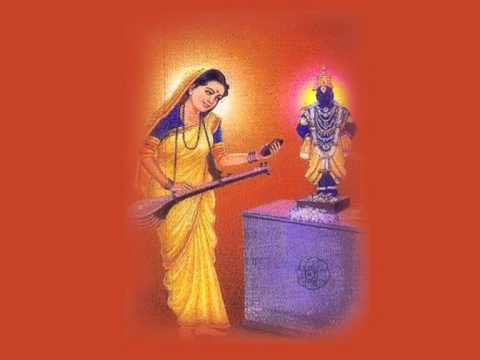Janābāi was a Marāthi religious poet in the Hindu tradition in India.
Birth : Likely in the 7th or the 8th decade of the 13th century
Birth Place : Gangākhed, Mahārāshtra.
Parents : Rand and Karand
After her mother died, her father took her to Pandharpur.Since her childhood, Janabai worked as a maidservant in the household of Dāmāsheti, who lived in Pandharpur and who was the father of the prominent Marathi religious poet Nāmdev. Janabai was likely a little older than Namdev, and attended to him for many years.
Through the influence of the religious environment around her and her innate inclination, Janabai was always an ardent devotee of Lord Vitthal. She was also a talented poet. Though she never had any formal schooling, she composed many high-quality religious verses of the abhang (अभंग) form.
Fortunately, some of her compositions were preserved along with those of Namdev. Authorship of about 300 abhang is traditionally attributed to Janabai. However, researchers believe that quite a few of them were in fact compositions of some other writers.
Along with Dnyāneshwar, Nāmdev, Eknāth, and Tukaram, Janabai has a revered place in the minds of Marathi-speaking Hindus who belong especially to the wārakari (वारकरी) sect in Maharashtra. In accord with a tradition in India of assigning the epithet sant (संत) to persons regarded as thoroughly saintly, all of the above religious figures including Janabai are commonly attributed that epithet in Maharashtra. Thus, Janabai is routinely referred to as Sant Janabai (संत जनाबाई).
Baji Rao moved his base of operations from Saswad to Pune in 1728 and in the process laid the foundation for turning what was a kasba into a large city. Bajirao also started construction of Shaniwar Wada on the right bank of the Mutha River. The construction was completed in 1730, ushering in the era of Peshwa control of the city
She died in 1350.

